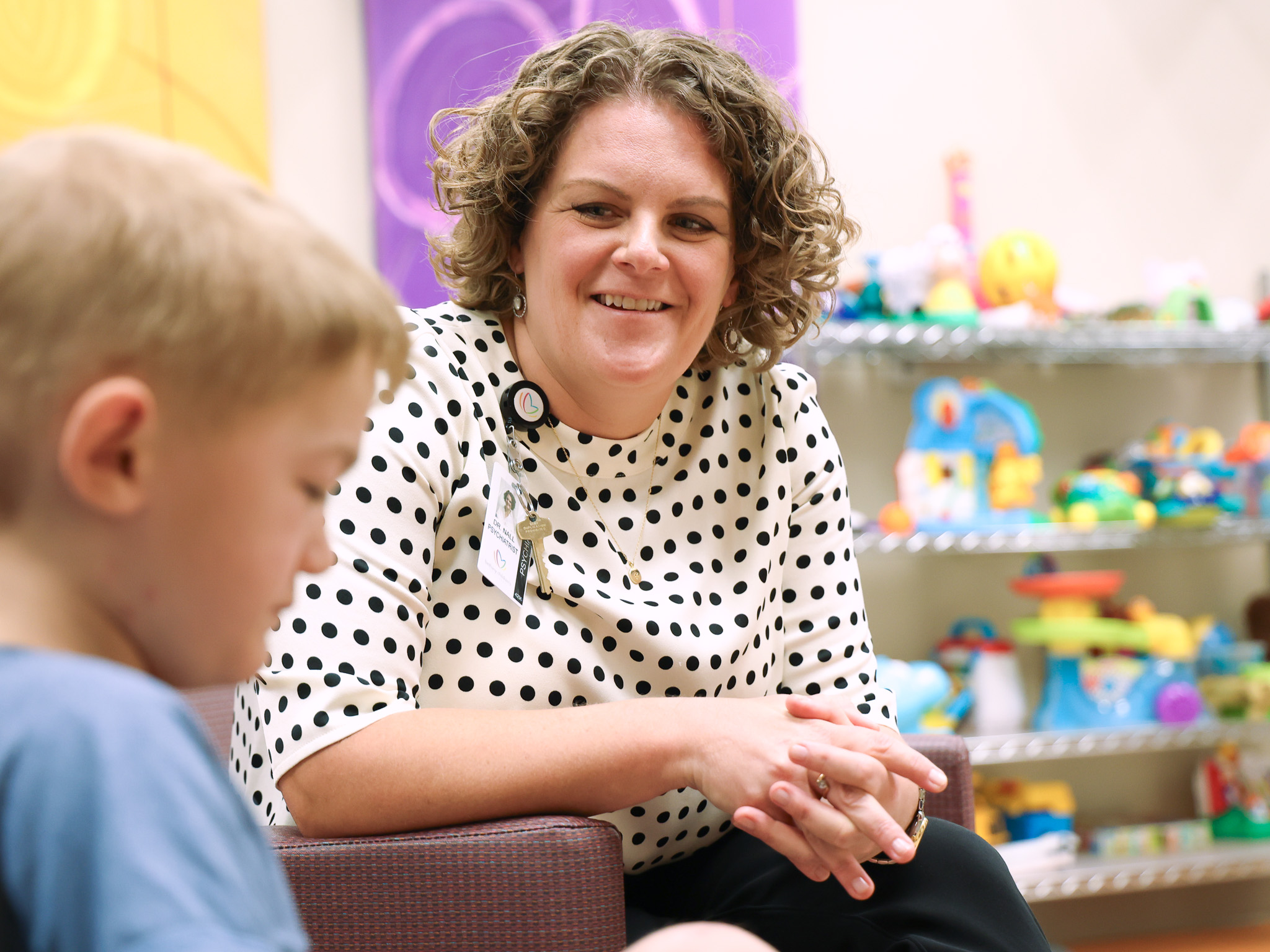
Today is World Mental Health Day. Mental health starts in childhood, with the Centers for Disease Control and Prevention (CDC) estimating that up to 1 in 5 children in the U.S. experience a mental, behavioral or developmental health disorder.
The CDC website explains, “Mental health is an important part of children’s overall health and well-being. Mental health includes children’s mental, emotional, and behavioral well-being. It affects how children think, feel, and act. It also plays a role in how children handle stress, relate to others, and make healthy choices.”
We talked with Dr. Whitney Nall, Child & Adolescent Psychiatrist at Bethany Children’s Health Center, to learn more about mental health awareness for parents of children and teens.
What are some ways parents can help nurture their child’s mental health?
Kids learn how to take care of themselves by watching their parents. Take the time to take care of yourself and lead by example. You can’t teach your kids about emotional wellness if you don’t understand it yourself.
It is important that parents validate their child’s emotions, rather than shame or dismiss them. Uncomfortable emotions are a normal part of the human experience. Normalizing and learning to work through them builds resilience.
Building your child’s emotional vocabulary gives them the language they need to express themselves and communicate their needs to others.
How can parents best talk to kids about and normalize mental health?
It is so important to create an environment in which the child feels safe and comfortable experiencing and expressing their emotions. Children need to know they can talk to their parents without repercussion or disappointment.
In a way that is developmentally appropriate for the child, parents can be transparent about their own emotions. For example, “Something happened at work that has me feeling a little down. How are you feeling?”
In what ways can overall healthy habits (sleep, physical activity, healthy diet, etc.) impact children’s mental health?
Electronics play a major role in the social lives of young people and the benefits of staying connected to friends in a safe and socially appropriate way shouldn’t be discounted. However, screen time without limits can have negative effects on sleep and other priorities like homework and family time. Poor sleep habits are a big driver of depression, anxiety, inattention, distress intolerance and emotion dysregulation. It is so important for children to develop a healthy relationship with screens for these reasons.
What are some signs that children or teens may be struggling with emotional/mental health issues?
It can be easy for parents to miss the signs their child or teen is struggling. Often parents attribute symptoms to hormones or “just being a teenager”. But clinical symptoms of a mental illness are not developmentally appropriate rites of passage. Concerning signs include a withdrawal from social and previously enjoyable activities, a drop in grades, changes in sleep, changes in personality, irritability, talk of death or not wanting to live, and excessive worry.
Why is it so important to raise awareness and normalize mental health?
Suicide is preventable and yet it is the second leading cause of death for young people in Oklahoma. There are effective treatments when people are able to access the care. The barriers are many but recognizing your child needs help is the first link in the chain.